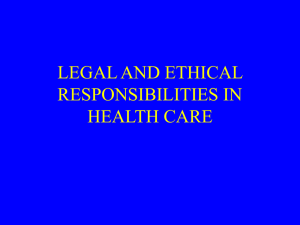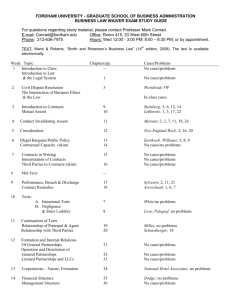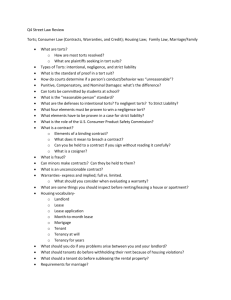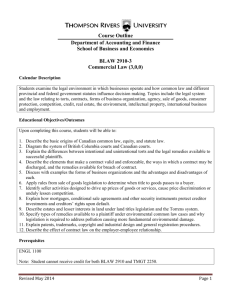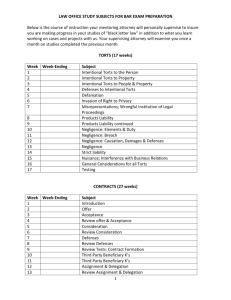tort note two
advertisement
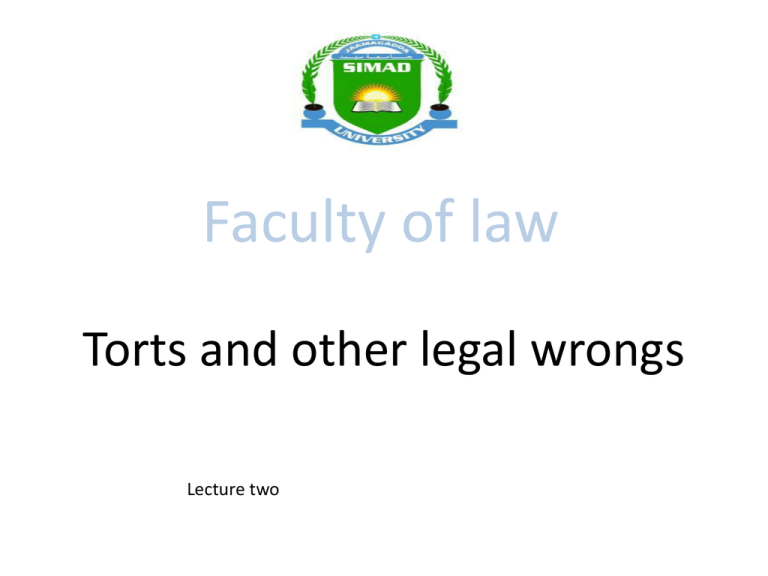
Faculty of law Torts and other legal wrongs Lecture two What about previous lecture? • Quick review • examples • Questions??? Torts and crimes • Similarities - they involve the wrongdoer - a car accident (example) - assault - libel - theft Torts and Crimes • Infringement of private right • Wrongdoer has to pay damage • Instituted by injured party • Intention is subordinate importance • Private wrong • Breach of public right • Criminal punished by the state/ fine goes G. treasury • Proceedings are conducted by prosecution/ by the state • Intention is main factor • Public wrong Contract • it is a voluntary agreement between two parties, which creates duties from each to other. • buy a car (example: breach of contract) • Wall builder (similarity example) - specific standards - negligence. Torts and contracts • Torts Breach of Contracts • Duty fixed by law • Towards every person • It is committed without consent • Infants are generally liable • In an action for tort no privacy needed • Motive is often taken into consideration • Damages are different • • • • • Duty is fixed by parties Towards specific persons Based on consent of the parties Infants are not generally liable Privacy of the parties must be proved • Motive is not relevant • Compensation for pecuniary loss suffered Quasi-contract • if a person is unjustly enriched, he must return it to the rightful owner. • A tradesman’s goods (example) - mistake Torts and quasi-contracts • Torts • • • • • Breach of quasicontracts Damages and other • Only money remedies • Liquidated sum of Unliquidated money damages • Towards particular Duty is general person/s Breach primary duty • There is no primary duty The two Maxims • Injuria sine Damno • Damno sine injuria ‘injuria’ means infringement of a legally protected interest ‘sine’ means without. ‘damno’ means actual physical loss whether in terms of money, comfort, health, service or the like. Injuria sine damno (or damnum) • This maxim means infringement of private legal right without damage or loss. • In other words, whenever there is an infringement of a private legal right, the person in whom the legal right is vested is entitled to bring an action and may recover damages, although he has suffered no actual loss or harm. • The returning office and the voter Damnum sine injuria • This maxim means ‘that no action will lie if there is actual loss or damage but there has been no infringement of legal right” • The rival school

